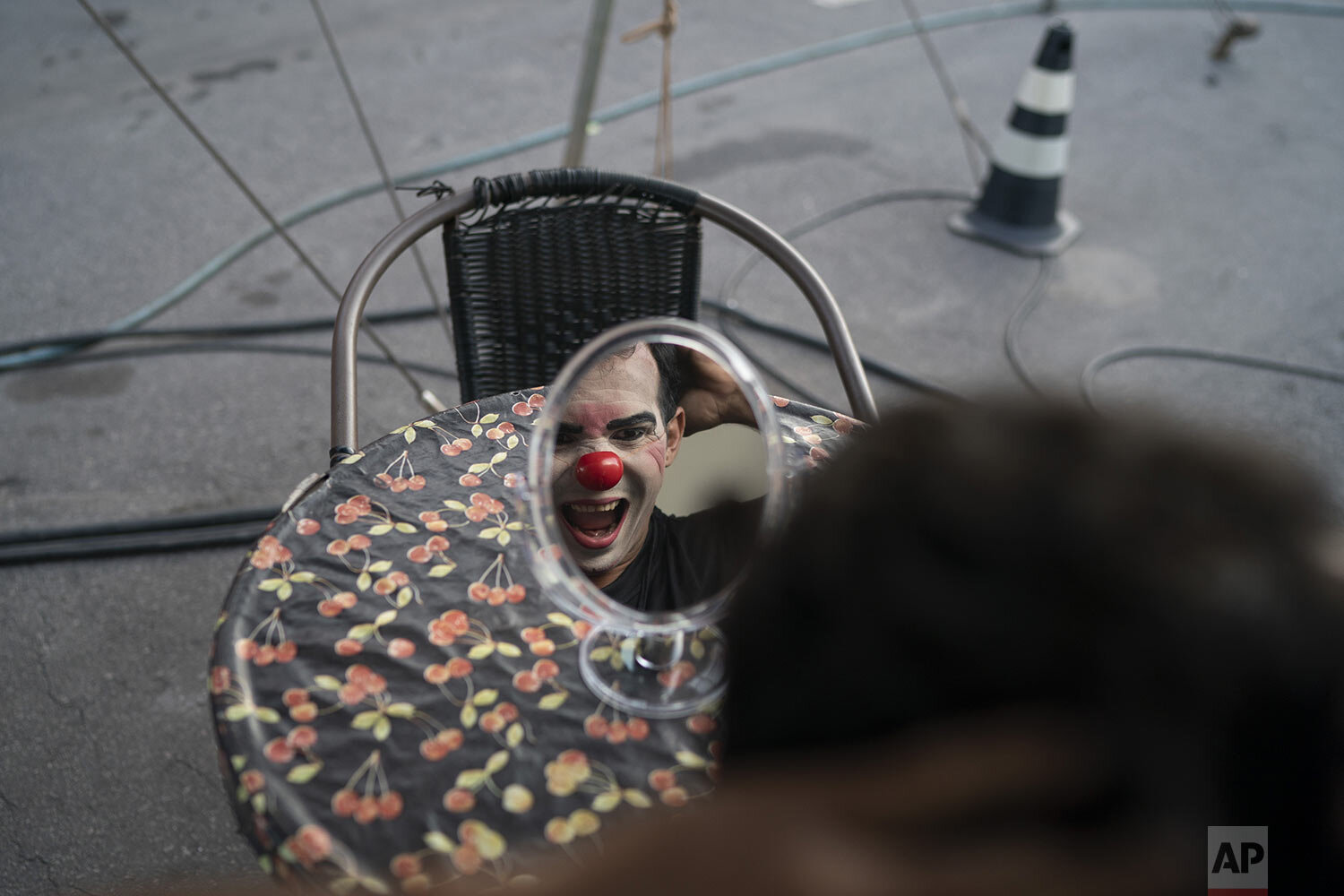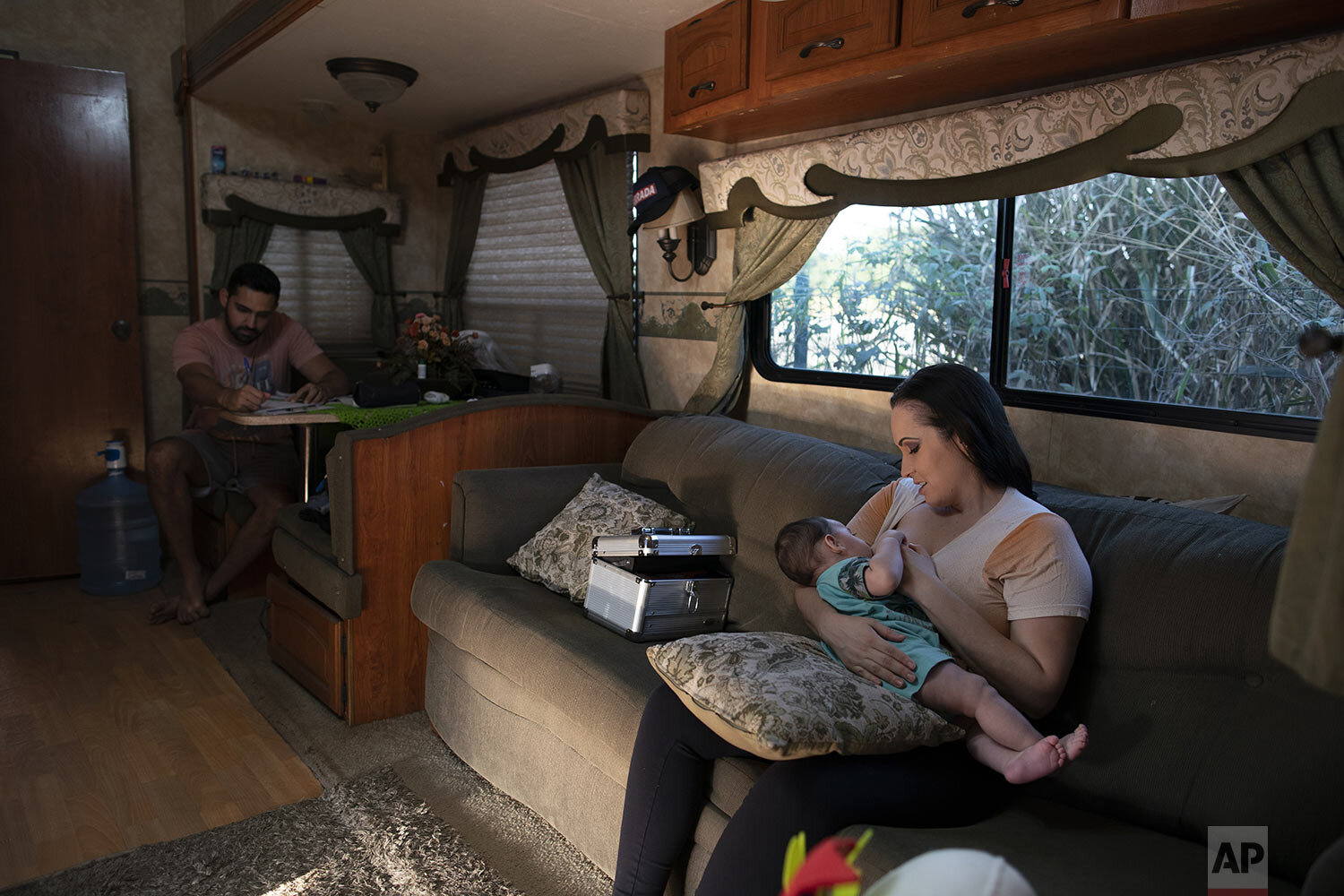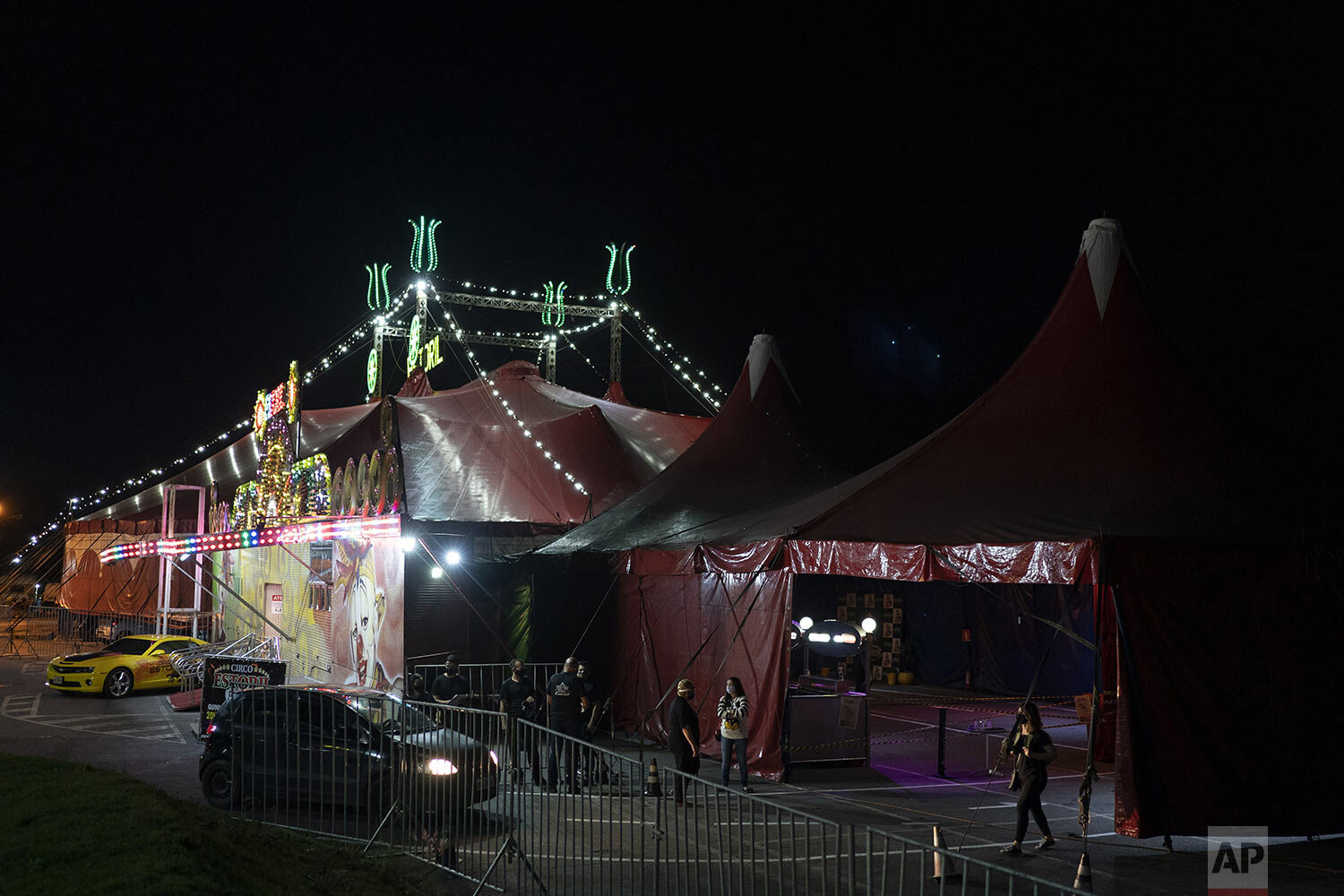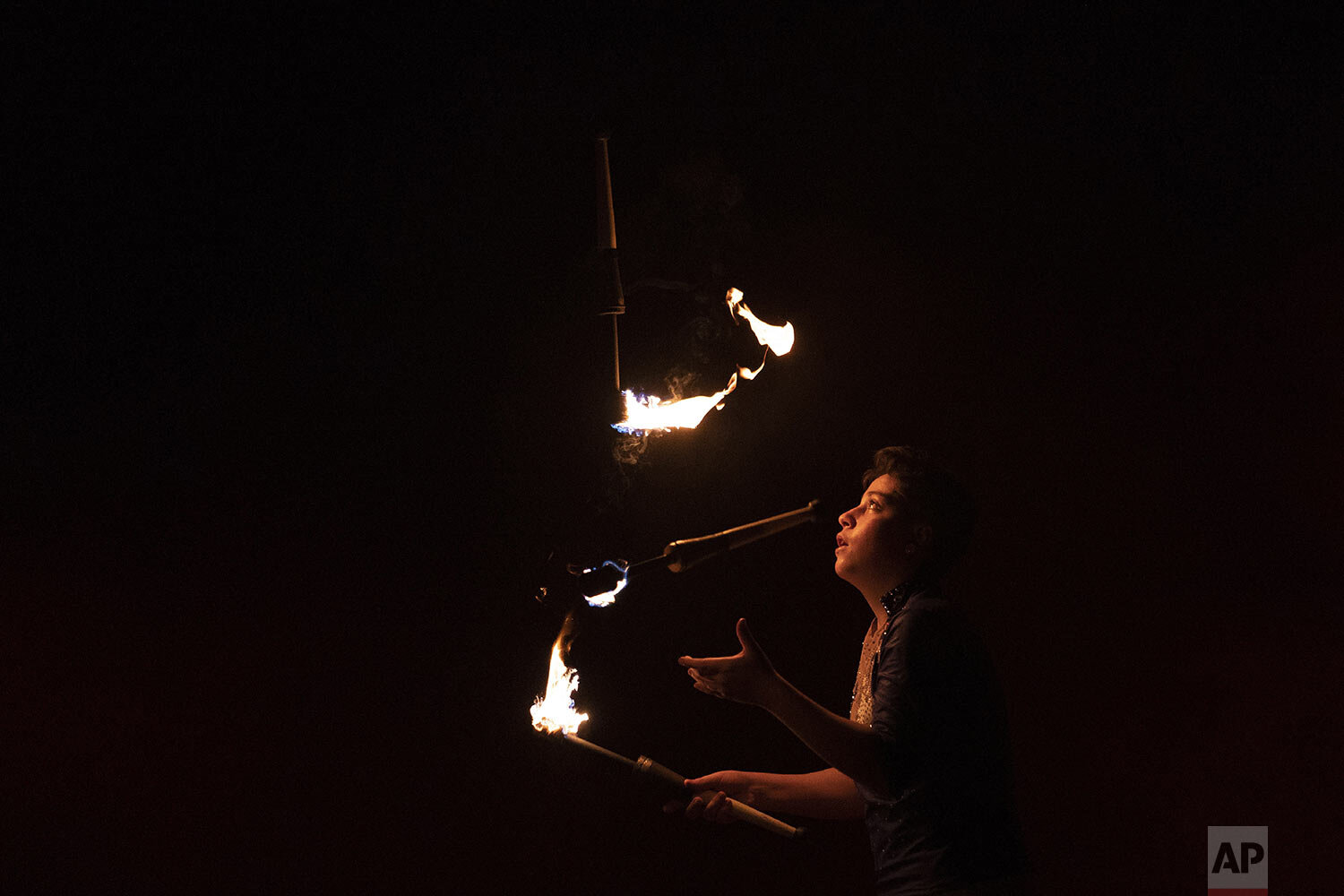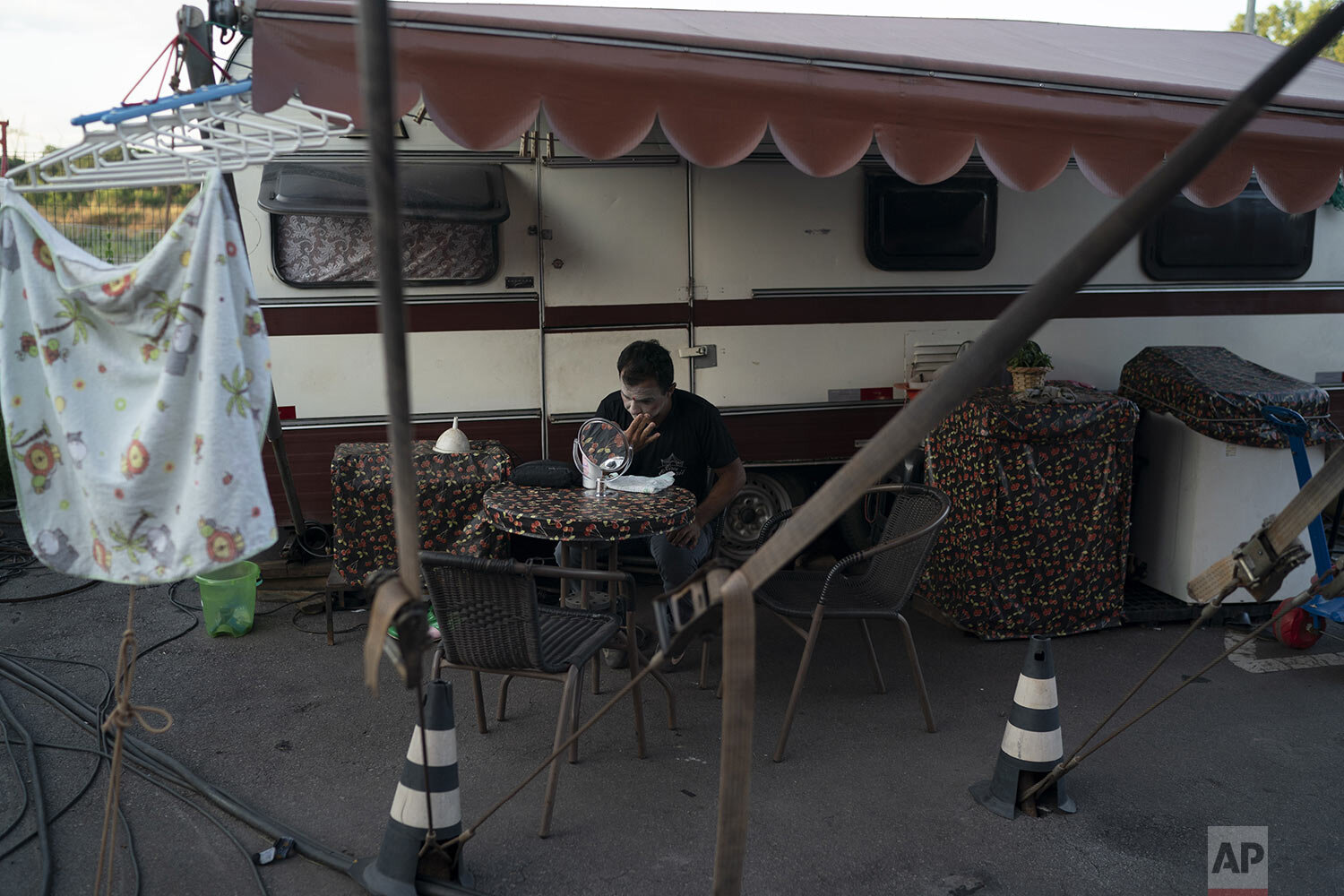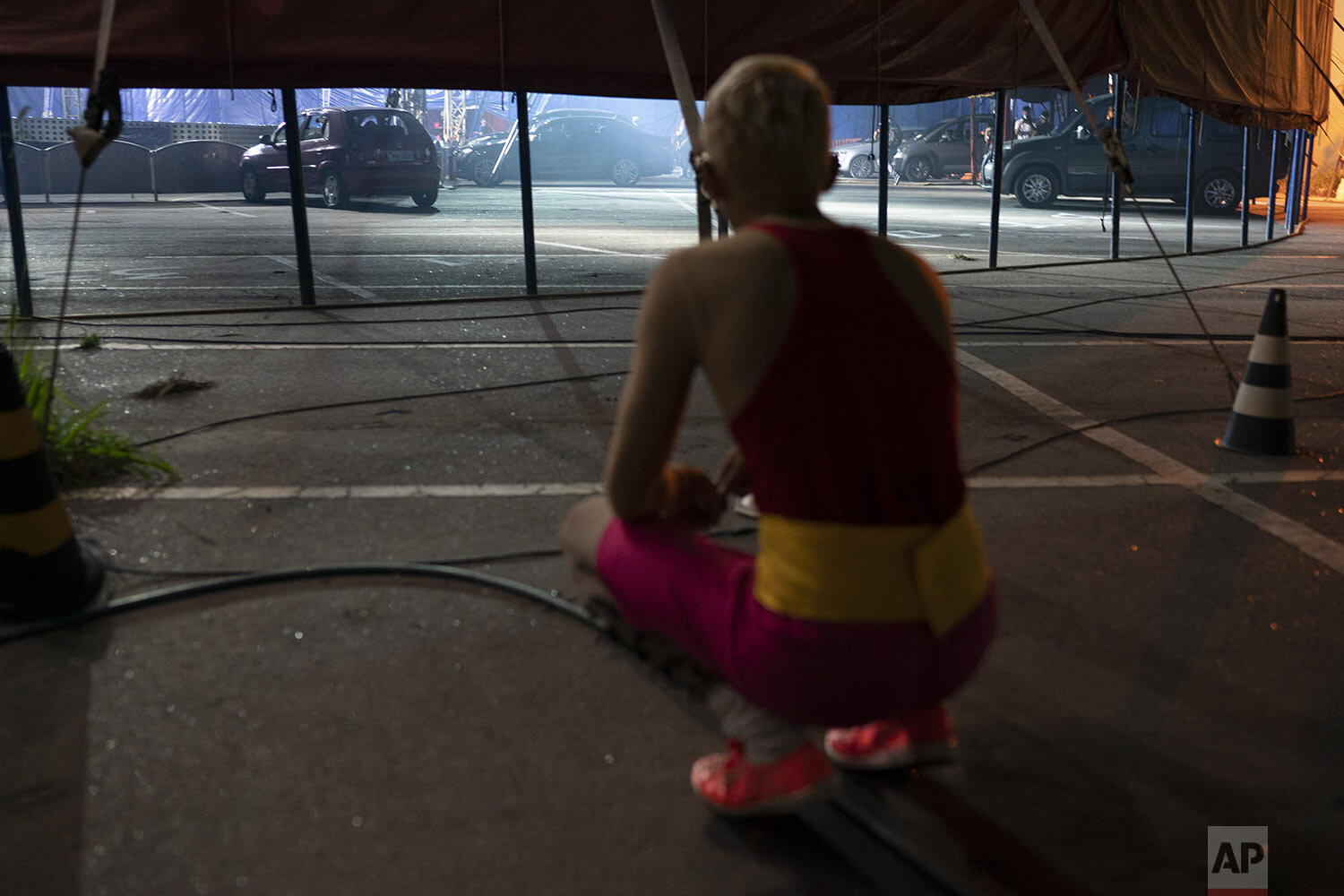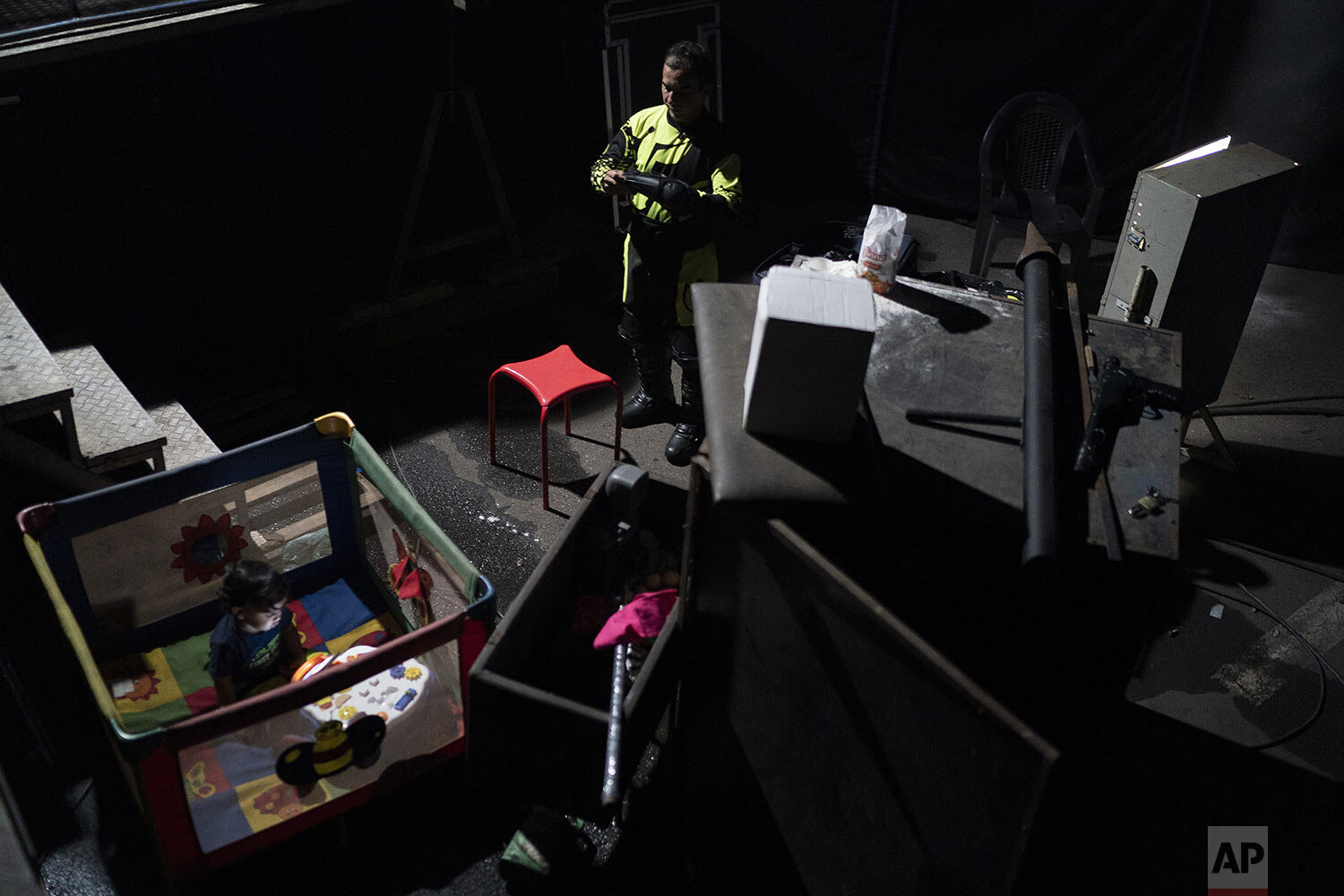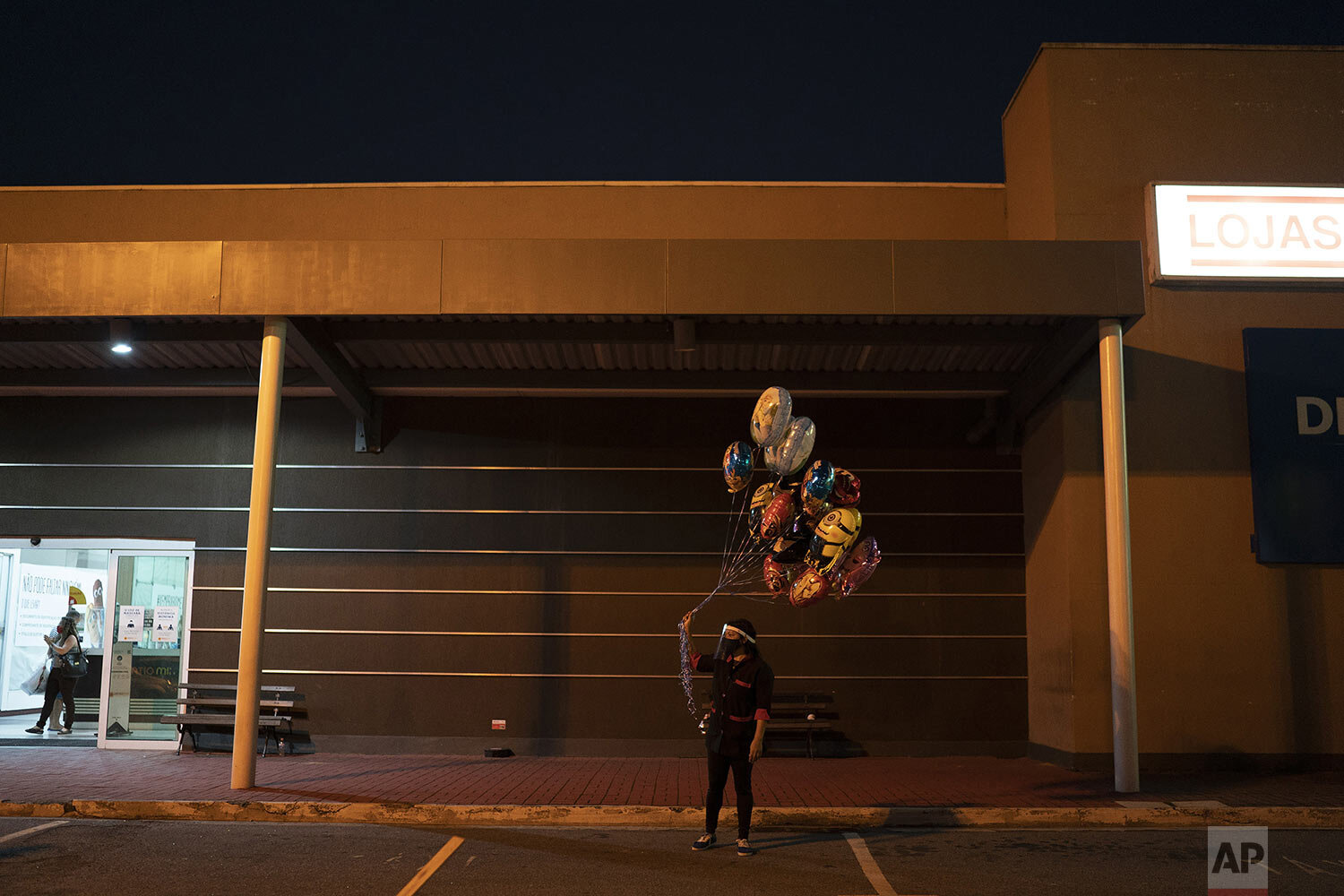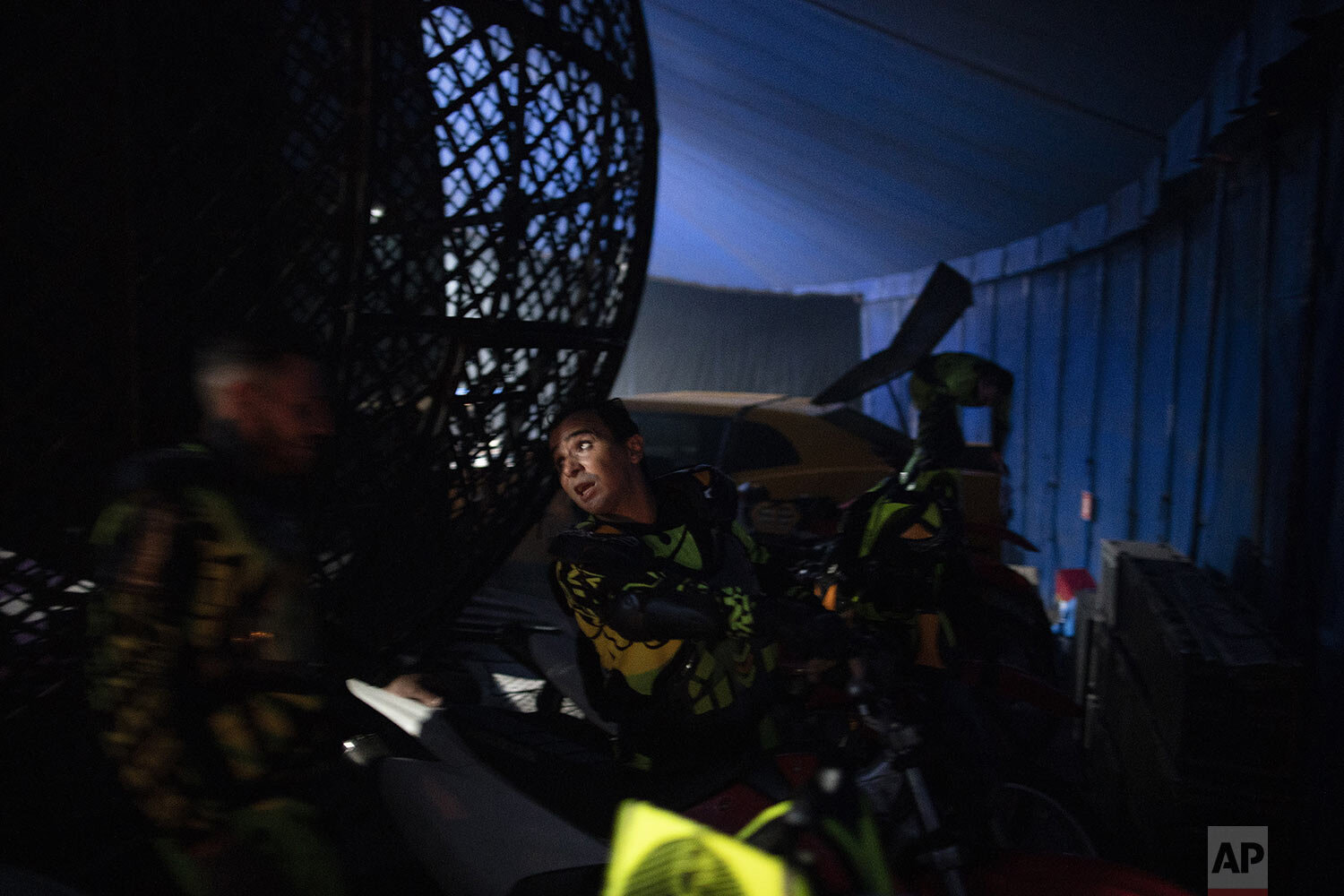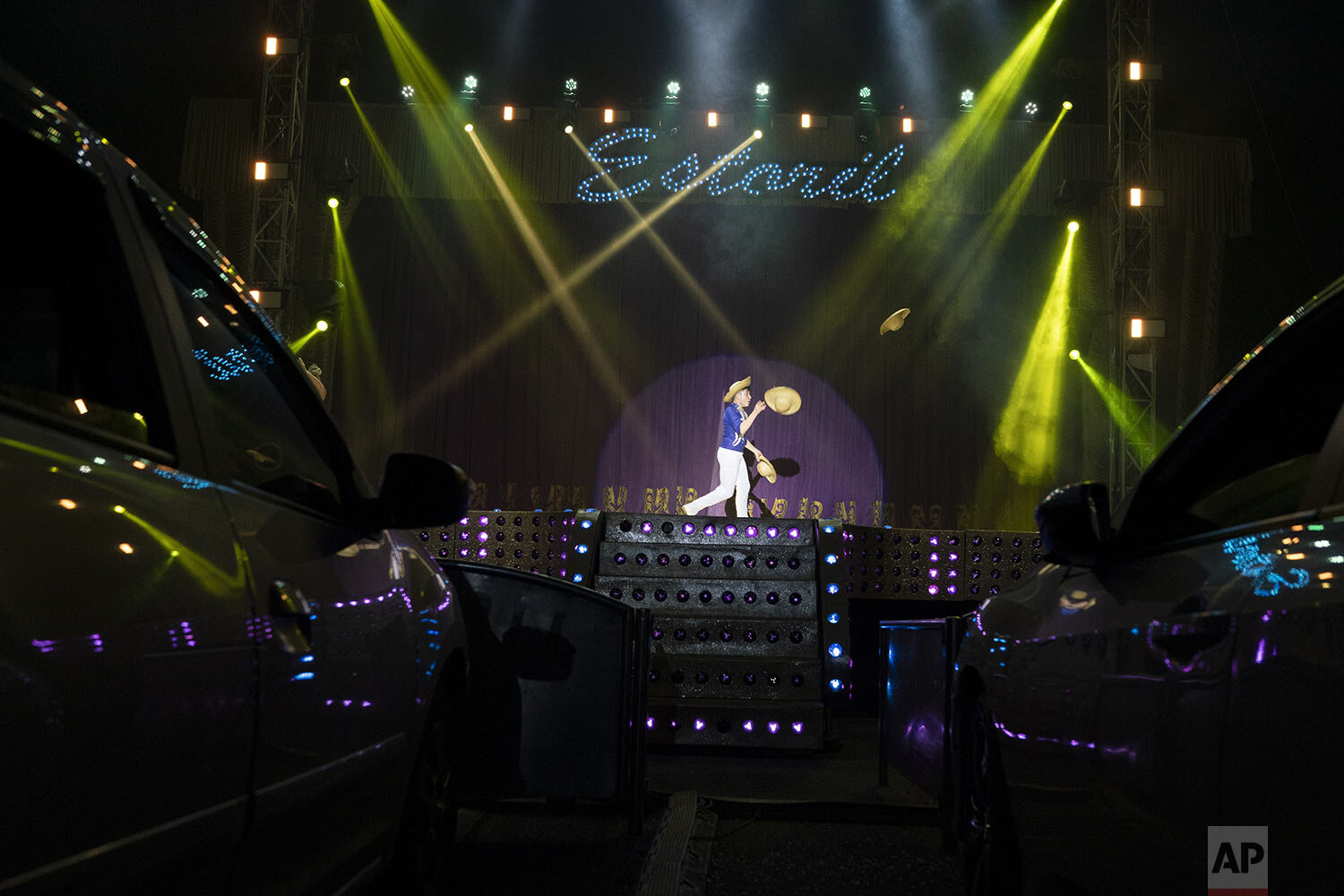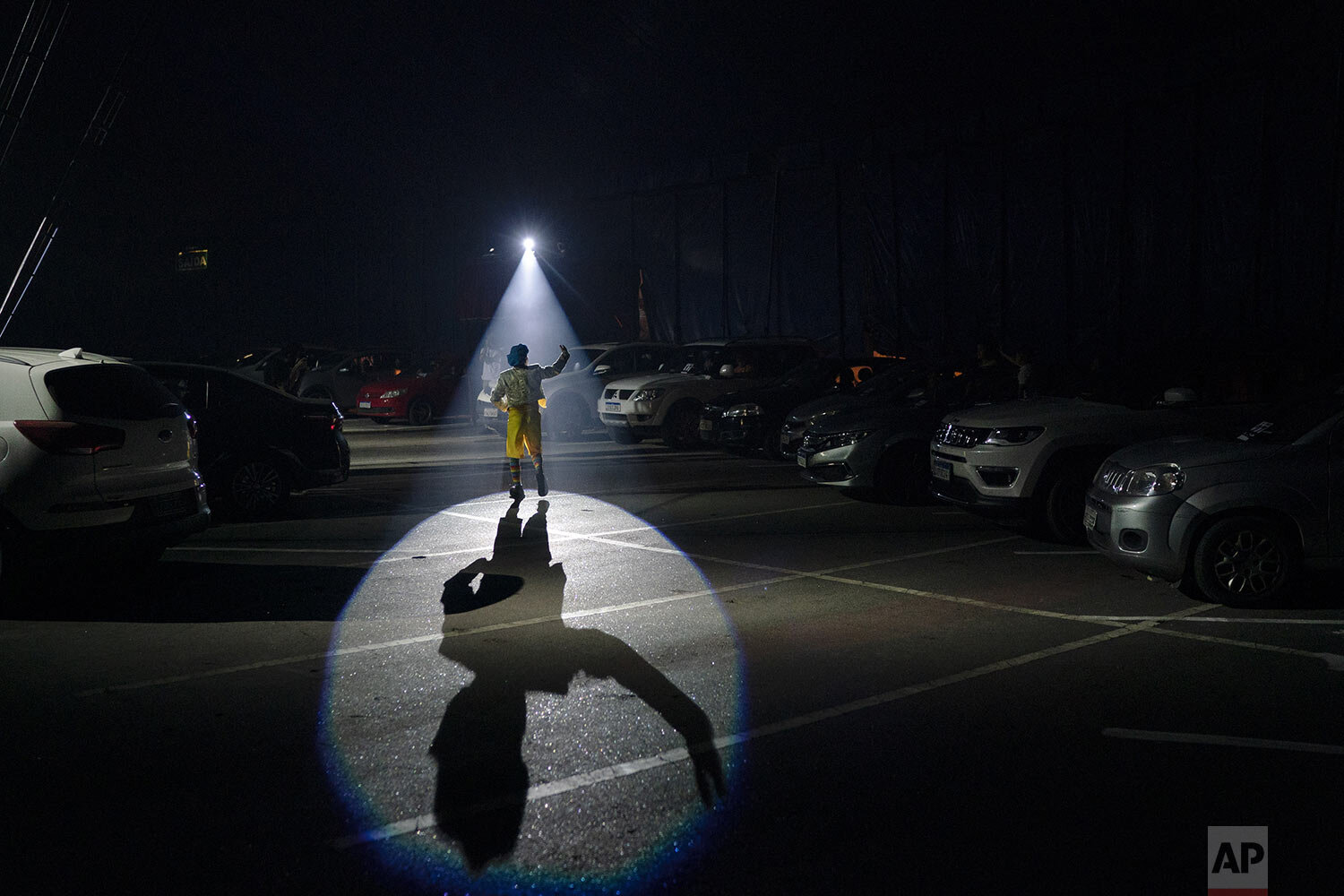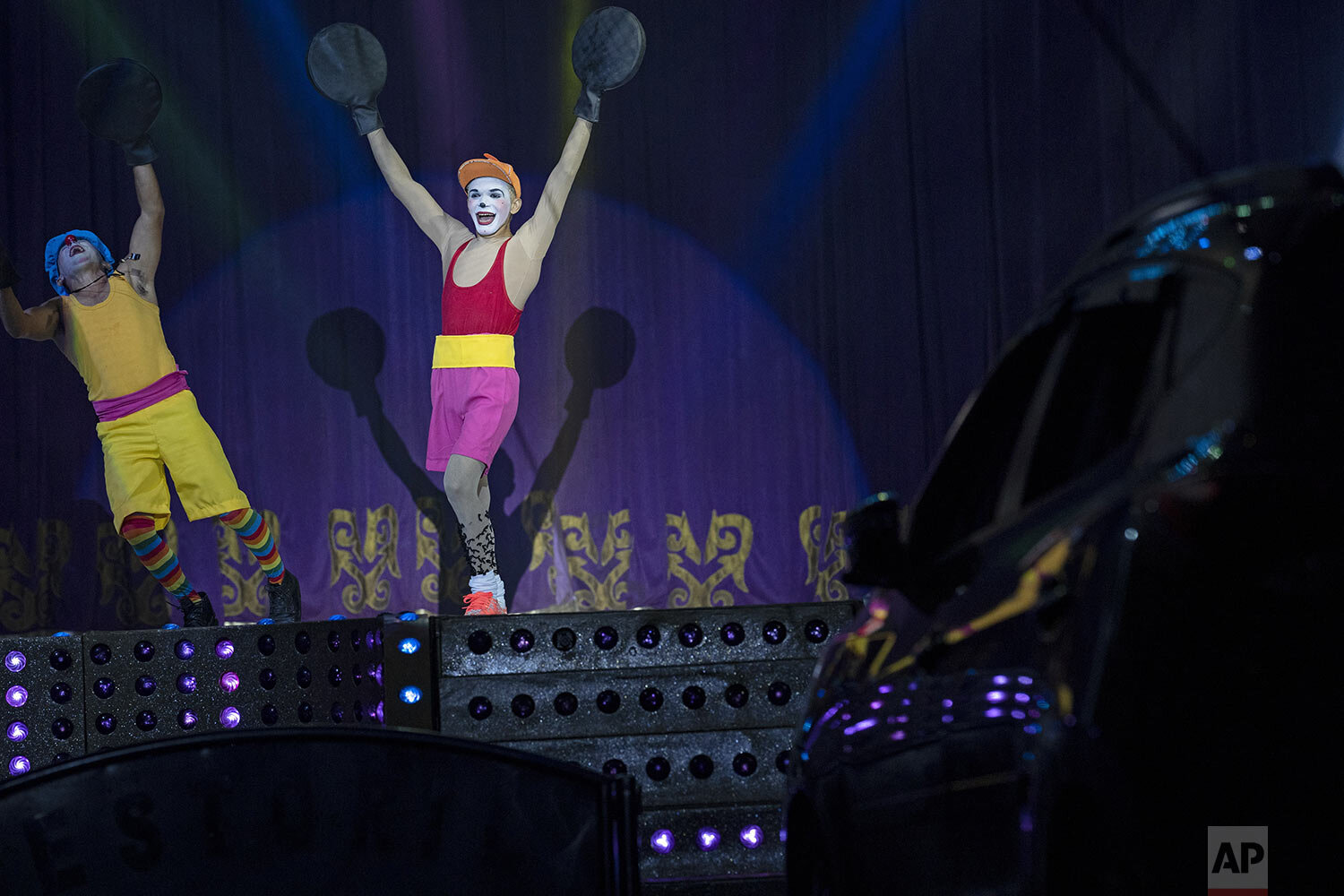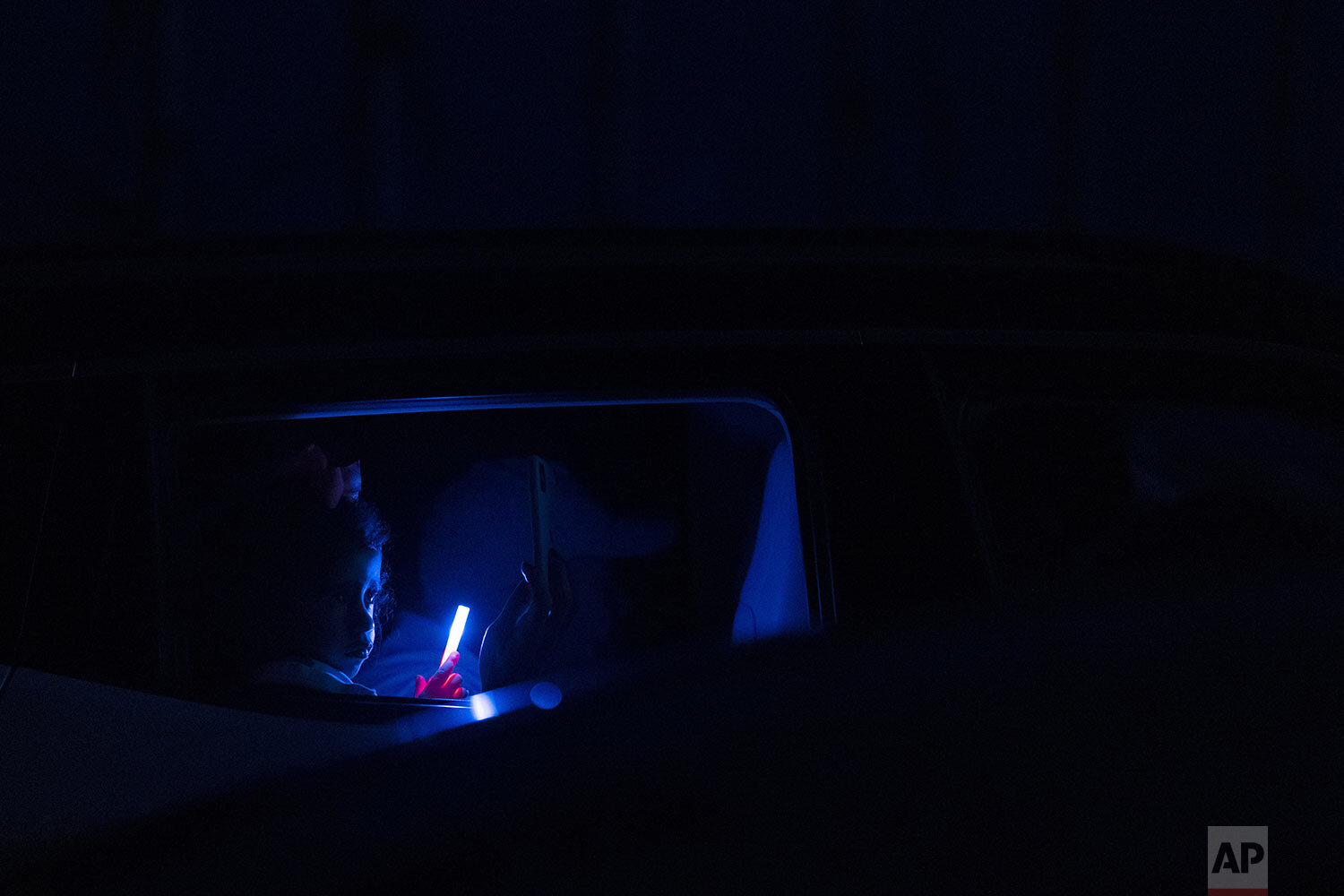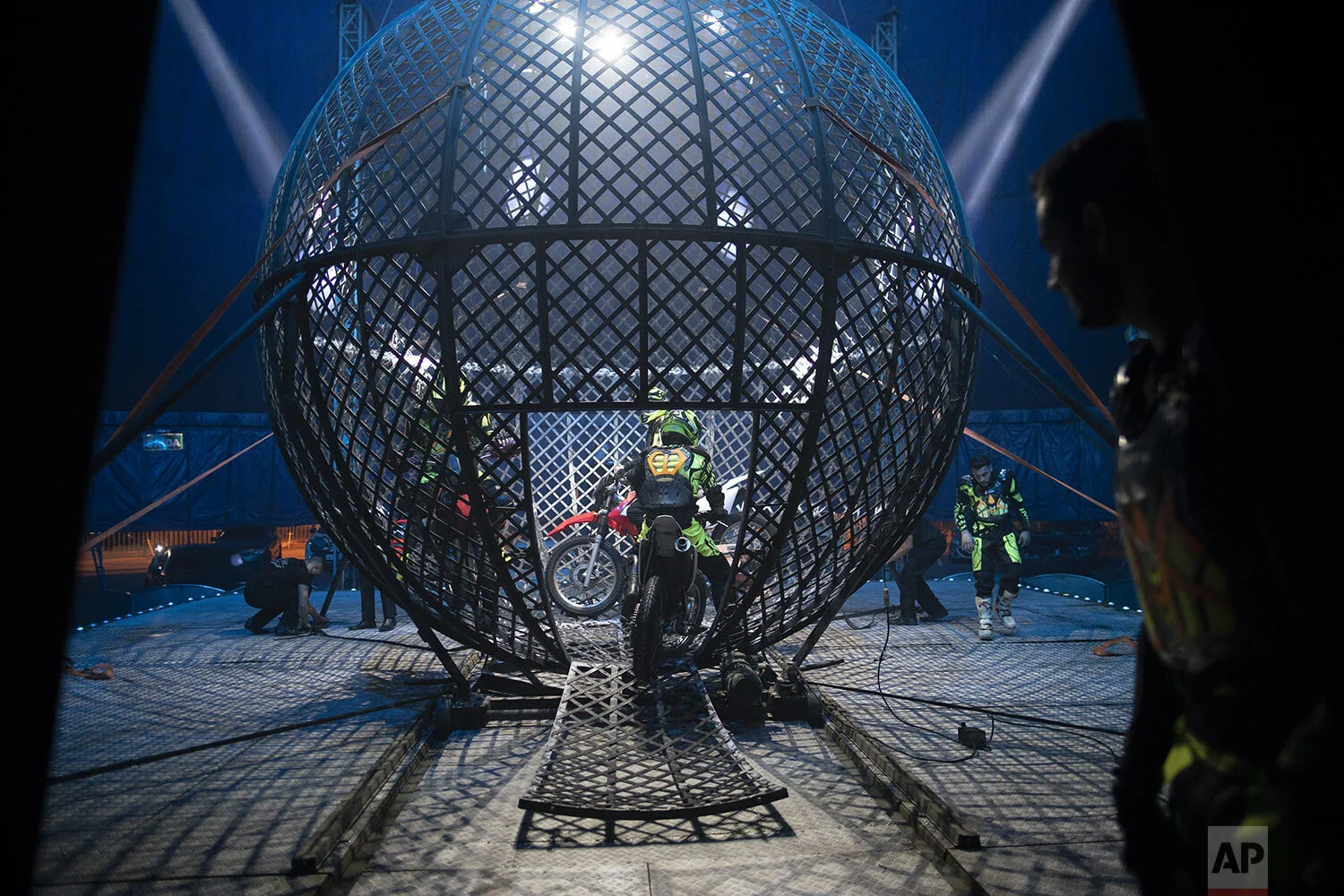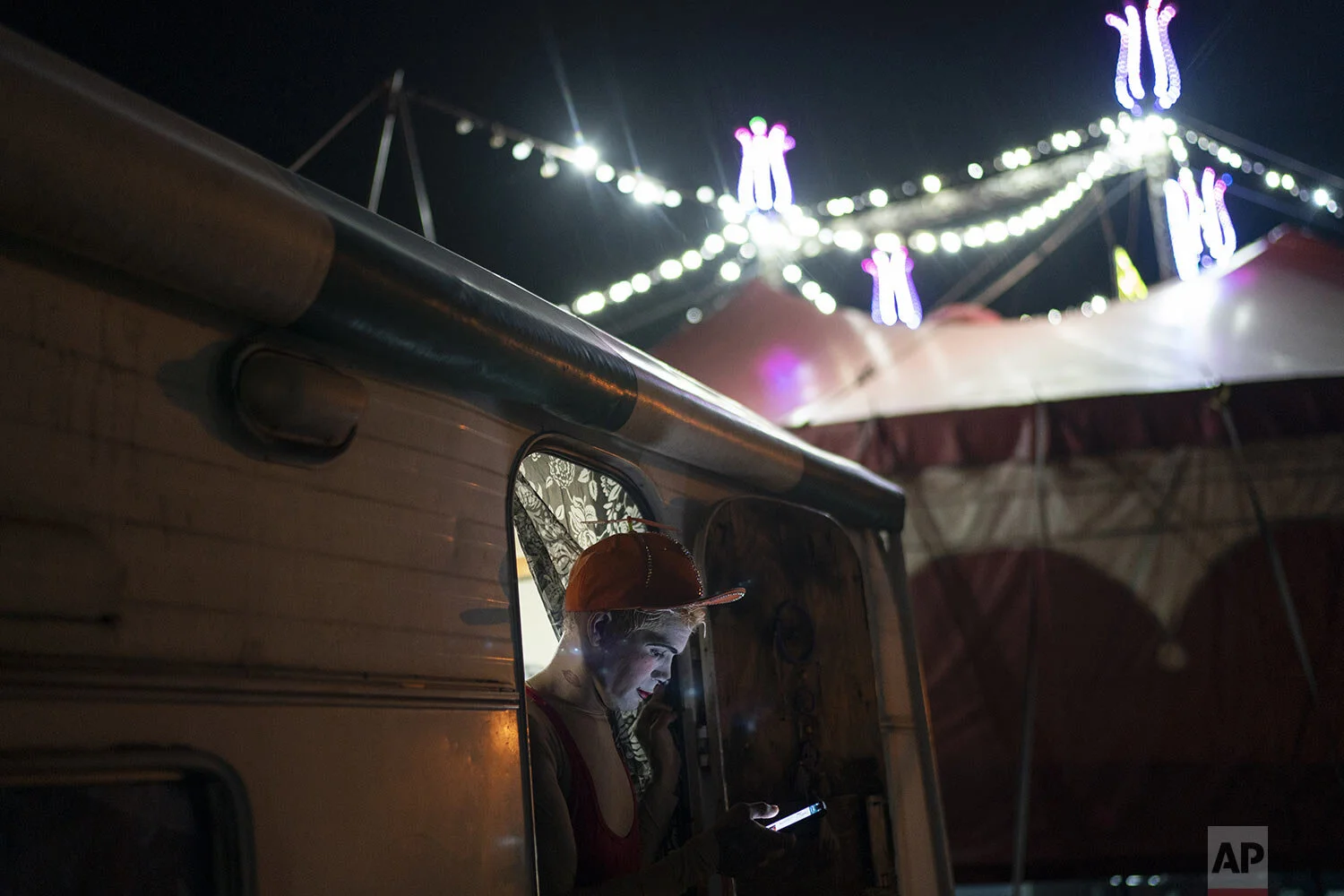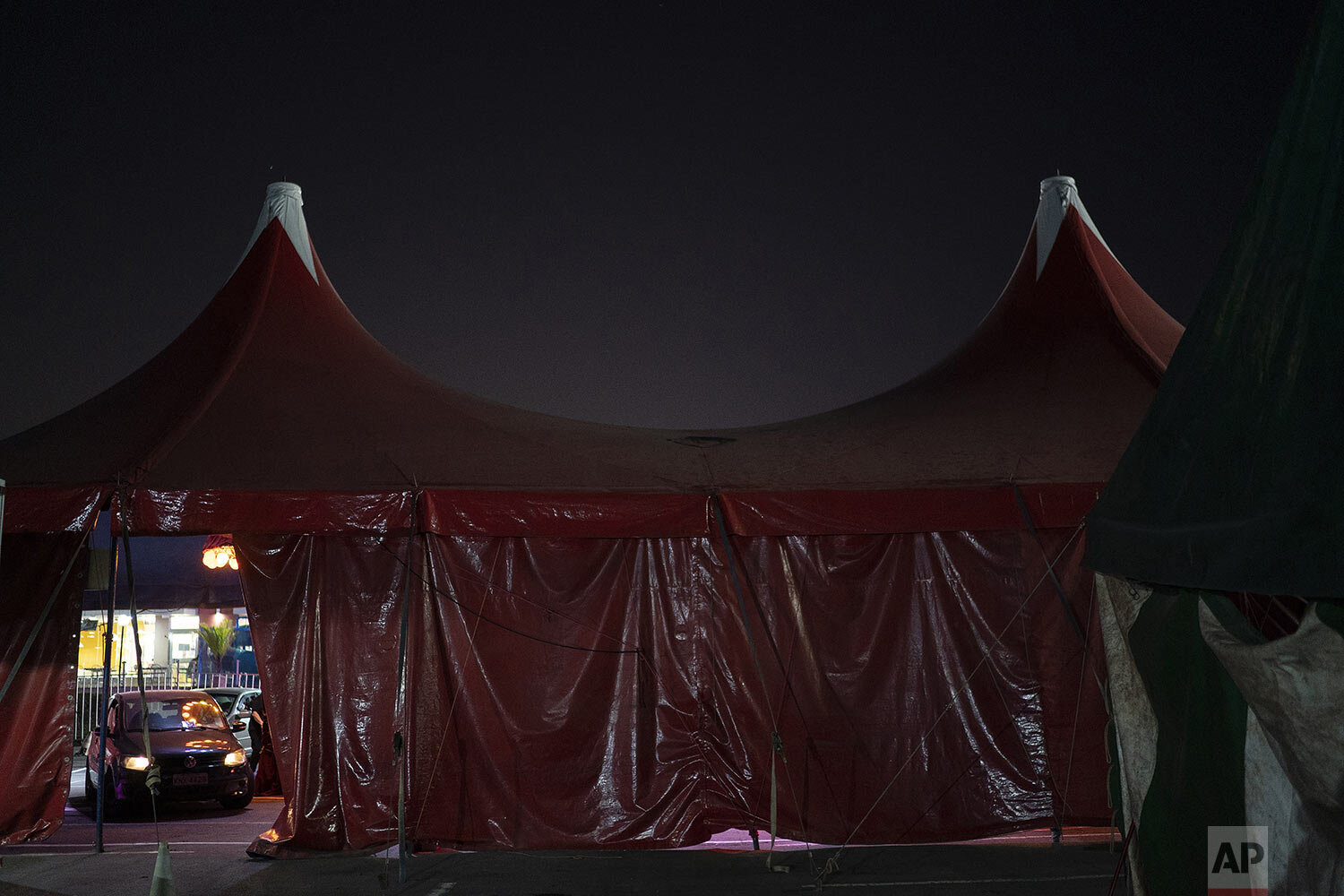Performers create a drive-in circus in Brazil

After almost four months of being unable to perform due to the pandemic, clowns, jugglers, and artists of the Estoril Circus in Rio de Janeiro, found a "vaccine" to go back to the stage. They created the circus drive-in.
Inspired by the model used for cinema, the alternative performance inside the circus tent ensures social distancing measures are still observed amid the continued COVID-19 crisis.
The entertainment industry was hit hard when it had to stop its activities during the pandemic and the circus was no exception.
A girl watches artists perform at the Estoril Circus drive-in show in Itaguai, greater Rio de Janeiro, Brazil, July 18, 2020. (AP Photo/Leo Correa)
Artists ride their motorcycles in the Globe of Death at the Estoril Circus drive-in show in Itaguai, greater Rio de Janeiro, Brazil, July 18, 2020. (AP Photo/Leo Correa)
Spectators drive up to the Estoril Circus for a show in Itaguai, in greater Rio de Janeiro, Brazil, July 18, 2020. (AP Photo/Leo Correa)
Clown Batatinha, played by Anderson de Souza, performs in front of cars at the Estoril Circus in Itaguai, in greater Rio de Janeiro, Brazil, Saturday, July 18, 2020. (AP Photo/Leo Correa)
For Anderson de Souza Silva, the circus' “Batatinha” Clown, which in Portuguese means Little Potato, having the circus closed for months was like losing a loved one. "Today, thank God, we are having the opportunity with the drive-in model to start the performance again," he said.
Due to the pandemic and the following economic downturn, only 35 of the 78 people who were working for the circus ahead of the outbreak remain.
Some artists share responsibilities, and after performing they sell tickets or help at the food court to deliver popcorn and beverages to the audience in their cars.
The tent can hold 40 vehicles, and the price of the ticket per car is between $15 and $20 USD.
Willian Cezar, a 40-year-old Itaguaí city councilman, took his family to the show.
"My daughter, for example, since I told her about the circus she asked me: ‘Is it today? Is it today? Is it today?’ To be in contact with culture is really nice, it's amazing, she's loving it," Cezar said.
The circus, which started in 1898 in Portugal, has been in Brazil for 30 years and for the first time had cars parked around the stage instead of a crowd of people.
From car windows, children and adults enjoyed the show where applause was replaced with car horns and flashing headlights.
Photos by Leo Correa. Text by Lucas Dumphreys

